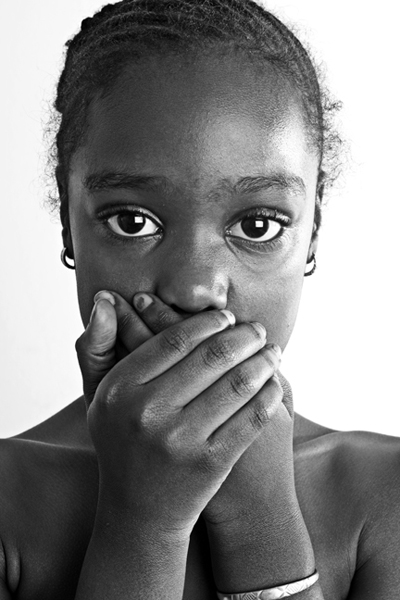Serendip is an independent site partnering with faculty at multiple colleges and universities around the world. Happy exploring!
Silence

a Vision of Silence and Voice
 I really wanted to use a picture of myself for this but didn't necessarily want it to show my face very clearly. I chose this for that reason and also because of what it shows about my voice/silence in a protest setting, something that is very important to me and has been an instrumental part in me finding my voice (as I wrote about in my last silence post). I also like that it is in black and white, especially after someone described silence as colorful in class and after reading the Little Book where Zehr recommends black and white fotography as a way to observe light. Also I just really like this picture :)
I really wanted to use a picture of myself for this but didn't necessarily want it to show my face very clearly. I chose this for that reason and also because of what it shows about my voice/silence in a protest setting, something that is very important to me and has been an instrumental part in me finding my voice (as I wrote about in my last silence post). I also like that it is in black and white, especially after someone described silence as colorful in class and after reading the Little Book where Zehr recommends black and white fotography as a way to observe light. Also I just really like this picture :)

A Moment To Break The Silence
 Taking my time, scrolling through the many images that my classmates had posted, I found that I kept going back to the image that Jomaira posted. This image stuck with me, even while I looked through the others. When I look at the young girl, it feels like her silence is partially self-induced. Though she looks like the silence is taking a toll on her it seems as if she cannot do anything about it. She has lost control of her voice and of her freedom to speak. But all at the same time, she is covering her mouth with her own hands. The power dynamic of control in this image can also be looked at through a different lense , it can also be a form of self-control; form that isn’t her primary option but one that she must choose.
Taking my time, scrolling through the many images that my classmates had posted, I found that I kept going back to the image that Jomaira posted. This image stuck with me, even while I looked through the others. When I look at the young girl, it feels like her silence is partially self-induced. Though she looks like the silence is taking a toll on her it seems as if she cannot do anything about it. She has lost control of her voice and of her freedom to speak. But all at the same time, she is covering her mouth with her own hands. The power dynamic of control in this image can also be looked at through a different lense , it can also be a form of self-control; form that isn’t her primary option but one that she must choose.
When I think back and find moments in my life where I have felt silenced, it seems as though I took the option of silencing myself. They are times when I felt that my primary opinion on something would be too much or just excessive. When location comes into these moments, they are all connected to being home. When I am at Bryn Mawr, I feel like my opinion will always be listened to, even if my listener does not agree with me. This is a community where I have learned to not let myself feel silenced because my peers have learned to listen to new opinions and take them in and instead of ignore them.

Silence

I was very struck by Anne’s idea that speaking up in class is akin to sharing, while staying quiet is selfish – somehow keeping brilliance under lock and key, and not giving the rest of the class access. I’ve never had a problem with talking in class, especially since coming to Bryn Mawr, but I often wish I could edit myself more and filter the ideas in my head slightly better before blurting them out. As much as I recognize that silencing oneself is not always a good thing, especially if it is out of censorship or fear or anxiety, I often find it helpful to just shut up and listen. When I silence myself in the classroom at any given moment, I notice that it tends to give someone else the opportunity to speak and share an idea. So is the converse true? Can my voice silence others?

Silence in two extremes
Silence is a precious item to find on this planet. Therefore, I picture it as the mystery hidden under the deep sea. Silence is far away but tempting. To visualize the concept of silence, I choose to use the deep sea as the representation of silence. Even though I describe silence in my graph as unknown, mysterious and isolated. My impression of the word silence is positive.


Listening and Silence

Sharaai's image of the library raised some questions for me about silence and my experience of it. A library is a space full of texts: novels, books of theory, biographies, anthologies, etc. -- archived and organized so that people can access information. The room itself can be silent -- it can exist in audible silence (when it’s empty), but can the space ever actually be silent because it houses so much information? (this sort of resembles the “if a tree falls in the woods” question). Text itself is that way. It is flat, recorded. The images and words are symbols and therefore exist in silence (or possibly without meaning) unless they are seen and understood/considered -- or unless we project meaning onto them or try to comprehend their intended meaning. They make no noise on their own. If they are archived, they are completely unobtrusive (unlike posters and ads, which we sometimes cannot avoid). They will not speak unless you invest your time in what they have to say.
This sets up an interesting relationship between silence and listening. When we are not actively seeking out the voices of these texts, or when we are not actively seeking out the voices of those who are not at the forefront of political or social discourse, are we silencing them?

The Privilege of Voice and Silence


When I first thought of images of silence that I might post last week, one thing I considered was some sort of silent protest or vigil, since activism and protesting are very important parts of my life and I love the idea of silence as a political or social act. Though I chose to go in a different direction for my picture, I was interested to see that Este put up pictures of protest, and that, contrary to what I might have done, they were clearly not silent protests. She chose to use the opposite of silence, noise, to represent silence. As I see it, the opposite of silence is represented in these images of protest not only because the activists are shouting and being not silent, but because they are heard, they have power and voice, they are expressing themselves in a way that those who are silent or silenced often do not or cannot.

I Choose to be Silent You Don't Make me be Silent

In questioning who has the power to silence whom, I often reflect on my experience based on my role within my family. I grew up in a very traditional family unit, one that maintains and defends the rules of patriarchy and reinforces the subordinate role of the women and children that exist in it. As a result of these ideals, the silencing of women has never been a foreign concept to me; on the contrary it is what has held the values of my family together. It was the silencing of my mother’s wishes to remain close to her brothers and sisters that resulted in us having to leave the Dominican Republic to pursue the economic opportunities my father wanted. It was the silencing of my aunt that led her to seek government assistance despite the fact that she had graduated from medical school because her husband was uncomfortable with the idea that his wife could be economically independent. It is my own silencing that prevents me from showing my family the opportunities I’ve taken advantage of at Bryn Mawr because they don’t believe that a woman is capable of such success.

A Quiet Bike Ride

I am fourteen and riding my bike back from the grocery store with a pack of colored sharpies and paperclips that I need for a science project. It’s light out, sunset at least an hour away, as I pedal down my neighborhood’s sidewalks. I pass neatly trimmed lawns that look identical, making the ride feel like an endless outdoor hall of mirrors, reflecting the same brick, two-story, white-trimmed house over and over. Despite my initial anger that my parents wouldn’t be able to give me a ride to the store because of their presence at my older brother’s awards ceremony, I’m enjoying riding my bike, the translucent grocery bag on my left handlebar shuddering and flapping in the wind, my pale skin exposed to the waning sunlight of this May afternoon. The grocery store is only a mile from my house, and I am nearing the end of my ride.

Time That I've Been Silenced

I decided to write about the first situation that came to mind when the prompt was given to us. During my senior year of high school, the superintendent, Dr. Carol R. Johnson, and the rest of the Boston Public School (BPS) committee “proposed” that the best way to deal with “underperforming schools” was to simply close them down; my high school being one of the seventeen on their list. Their reasoning behind this decision or proposal was based on our MCAS scores (Massachusetts standardized tests). The main problem (and reason why I put the phrase underperforming schools in quotations) with their reasoning was that not only were the scores of a lot of these schools increasing every year, but that most, if not all, of these schools on the list were lacking the resources to even prepare their students for these tests. A lot of these schools were overpopulated and economically struggling.




